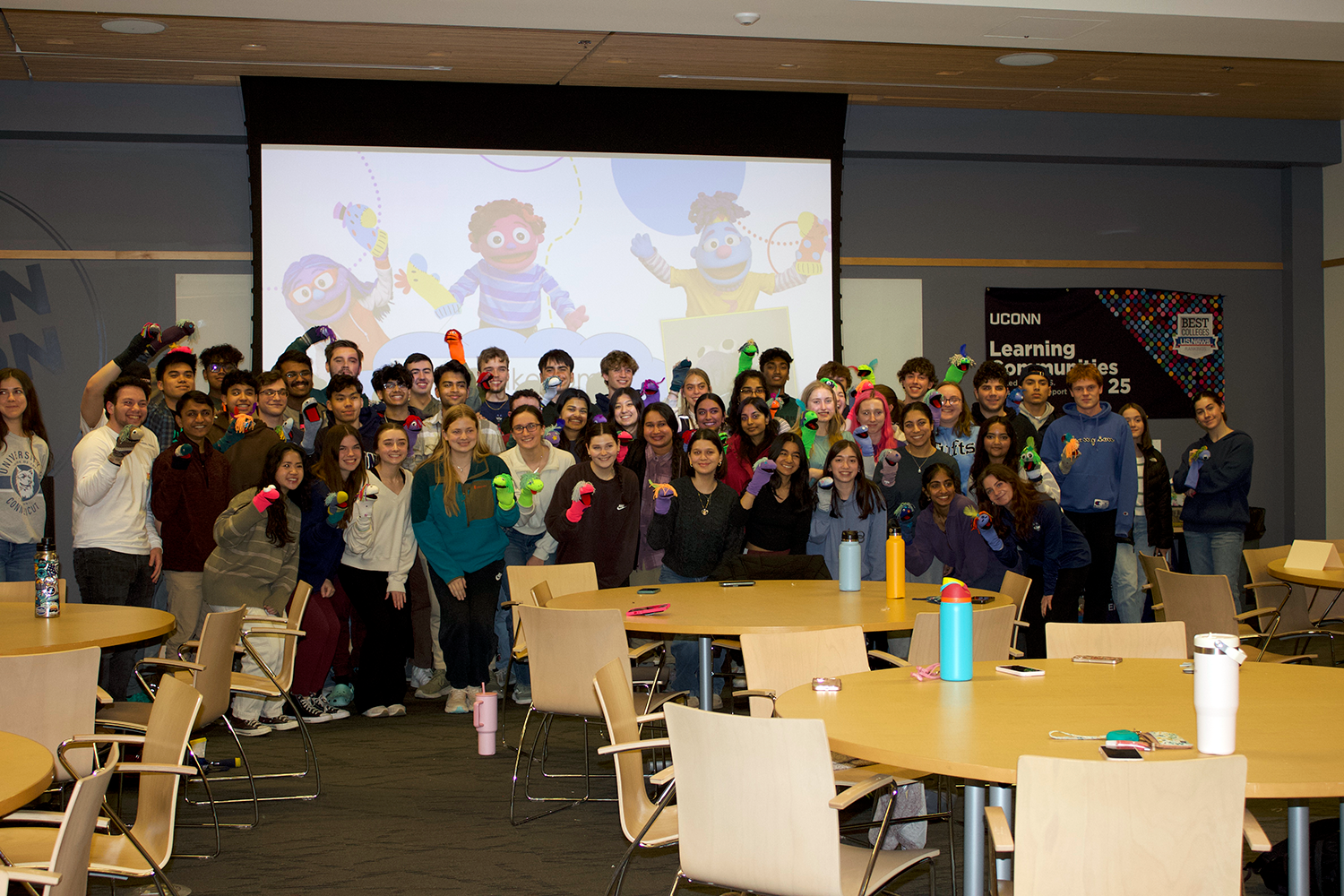A new institute for brain and cognitive science and a humanities project exploring the barriers to meaningful public discourse are just two of the faculty-led initiatives the University of Connecticut is supporting through the allocation of nearly $10 million in grants.The three-year grants represent the first set of targeted school investments directly related to UConn’s new Academic Vision, which pursues excellence in five fundamental areas: undergraduate education, graduate study, teaching, engagement, and research.
The awards underscore UConn’s commitment to excellence in the STEM fields (science, technology, engineering, and math), and are intended to reinforce UConn’s role as a leader in innovation and workforce development, as outlined in the state’s Next Generation Connecticut initiative.
“In order to grow our research and teaching capabilities, we must invest in our future,” UConn President Susan Herbst and Provost Mun Choi said in a joint statement when the investments were announced. “Taken together [these awards] … represent a milestone in our continuing efforts to achieve the academic goals we have set for the University. These grants will support research across a wide variety of disciplines and departments – the humanities, social sciences, sciences, and professional schools and colleges.”
With a $1 million grant, the new Connecticut Institute for Brain and Cognitive Science will leverage UConn’s growing core of eminent faculty exploring the science behind perception, cognition, language, communication, and the intricate workings of the brain. The institute will integrate research into communication disorders, linguistics, and psychology with related work being conducted by specialists studying neurobiology, and molecular, genetic, and behavioral neuroscience. UConn faculty exploring the physical sciences, including physics, chemistry, and engineering, will also be affiliated with the center.
The Public Discourse Project, also the recipient of a $1 million grant, will be overseen by UConn’s Humanities Institute in the College of Liberal Arts and Sciences. Through the project, UConn faculty in the arts and humanities will explore ways to achieve meaningful public discourse in an increasingly divisive culture. Those involved with the project will look at the historical and sociological barriers that stymie productive social dialogue and, alternatively, the conditions that foster it. With anticipated additional funding from the John Templeton Foundation and the Andrew W. Mellon Foundation, the project is designed to establish UConn as an international leader in public and digital humanities research.
“The project aims not only to understand the sources of our cultural division, but to do something about it: to combine academic research and community engagement toward the goal of raising the level of discussion in the hope of strengthening democracy,” says philosophy professor Michael Lynch, director of the Humanities Institute.
Major grants of nearly $1 million were also awarded to UConn’s Institute for Systems Genomics and a new Connecticut Cybersecurity Center at UConn. The Institute for Systems Genomics plans to use the funding to strengthen its existing research technology and create a sophisticated computational data analysis network that will enhance its research capabilities. The grant provided to the Connecticut Cybersecurity Center will be used to support collaborations between faculty in the schools of engineering, business, law, and the College of Liberal Arts and Sciences. Those collaborations will pursue innovative cybersecurity technologies related to computer hardware and software, information management, and data protection and privacy.
“The research and scholarship pursued through these investments will not only enhance UConn’s profile as a top-tier research institution, accelerate the game-changing research and teaching being conducted across UConn campuses, and forge new partnerships with industry, but also support our commitment to being a Next Gen Connecticut-driven engine for economic development,” says Jeff Seemann, UConn’s vice president for research.
Nearly 300 members of the UConn faculty participated in the planning process that led to UConn’s new Academic Vision, which was adopted in the spring of 2014. School officials received more than 135 proposals for the highly competitive Academic Vision grant awards. The awards were decided by committees responsible for different grant categories such as research and scholarship, undergraduate education, and public engagement.
Other proposals that were funded include $700,000 in additional support of teaching excellence; $450,000 to open a state-of-the-art neurogenetics facility for mice; $450,000 for the creation of a one-of-a-kind smart resource grid facility that will address world challenges such as food security, water conservation, and energy resources; and $240,000 for the development of two new reading interventions for children with developmental dyslexia.
School officials are also investing heavily in new equipment including $1.4 million for enhanced high-performance computing; $657,000 for a small animal imaging device capable of quantitative 3-D optical tomography; and $443,400 for virtual cadaver dissection tables that will allow students to interact with life-size human anatomy using virtual knives to cut away layers of the human body and view them at any angle.
A more complete list of the funded Academic Vision proposals can be found here.




